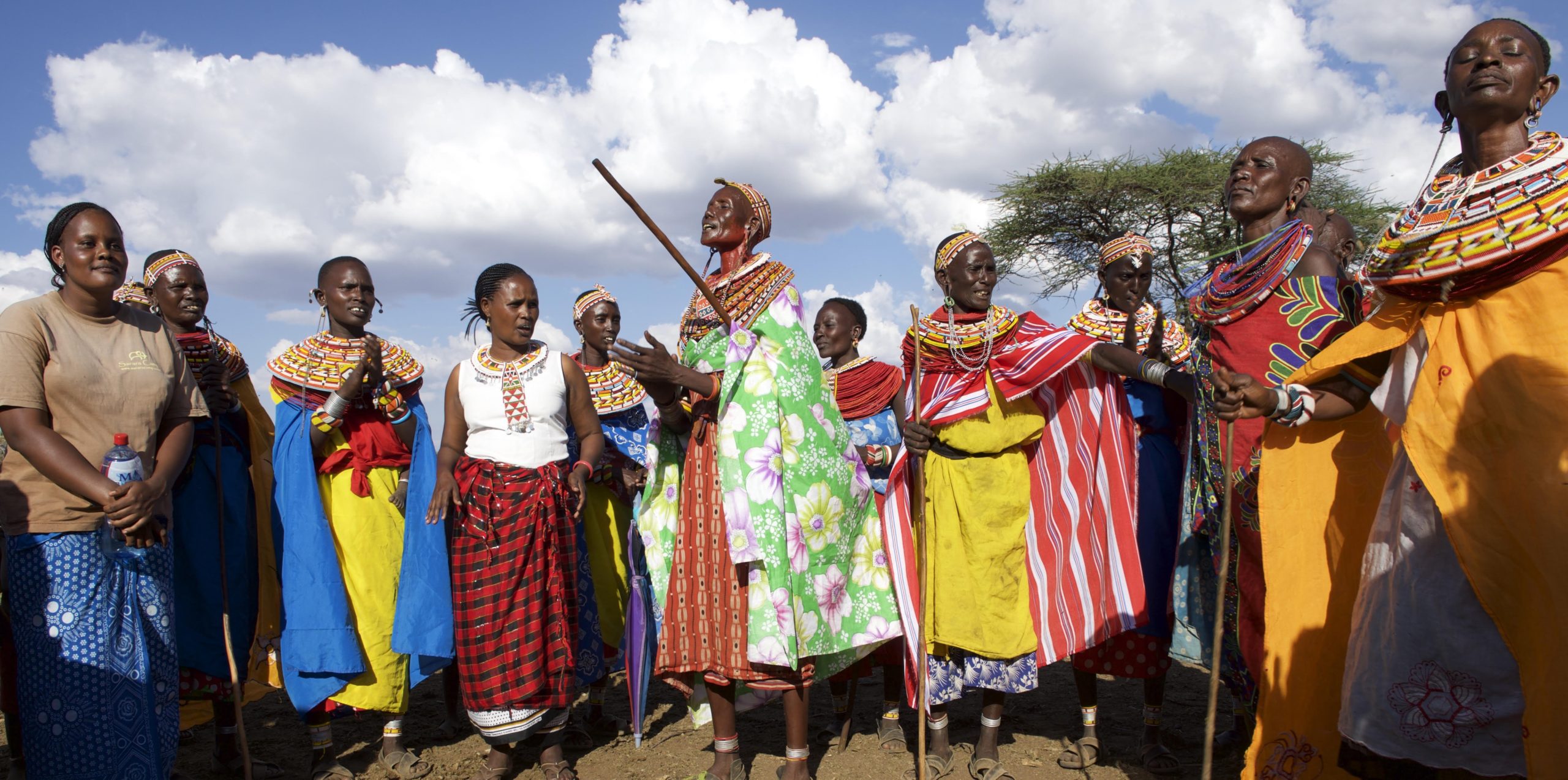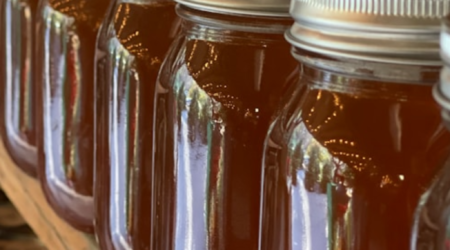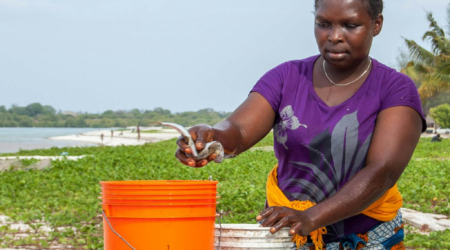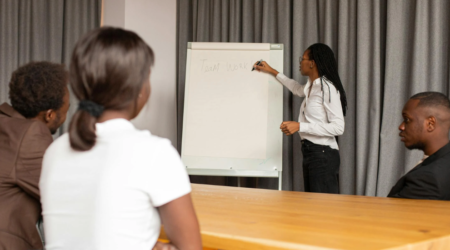Strengthening livelihoods: The Milk-to-Market program

In Samburu County, Kenya, an innovative partnership is transforming both wildlife conservation and women’s livelihoods through an unexpected connection: goat milk. When COVID-19 disrupted the milk supply chains for orphaned elephants at the Reteti Sanctuary, the Sarara Foundation recognized an opportunity to address two challenges simultaneously. The sanctuary needed reliable milk supplies, while local women sought economic opportunities in a region where 76% live in poverty. The Milk-to-Market program, launched in 2021, creates this vital connection.
Samburu County faces deep socio-economic challenges, including limited job prospects for women and increasing climate change strain on pastoralist livelihoods. Traditionally, women’s economic activity was largely confined to livestock sales, often contingent on spousal approval, which restricted their control over household income.
To address these challenges, the Sarara Foundation, with 30 years of conservation and community development through Sarara Lodges’ sustainable ecotourism, started the Milk-to-Market program. The program engages 1,245 local women who produce 800 liters of goat milk daily. This milk feeds orphaned elephants at Reteti Sanctuary, and any surplus is supplied to Sarara Lodges while generating sustainable income for the women’s families. The program transforms goat milk from a household commodity previously used for personal consumption, with surplus often wasted, into a catalyst for women’s economic empowerment. As the program evolved, BFA Global partnered with the Sarara Foundation through the Opportunity Leads Umbrella Fund project to support the diversification of goat milk uses beyond the lodges, to ensure continued purchases from Samburu women, and to create opportunities for more women to benefit from the initiative.
This blog delves into the program’s achievements, challenges, and insights gained in creating a sustainable market.
Milk-to-Market program successes
Over the past four years, the Milk to Market program has fostered significant financial agency. “I am proud that the baby elephants are healthy, and that it’s my goats feeding them. We could open bank accounts for the first time, and have the confidence that we’ll be paid every month. I can afford my daughter’s school fees, and save money for the first time–to spend on my family and myself.”
To date, the program has injected $40,000 in monthly revenue into the local economy, with participating women earning an average of $33 per month. According to the Sarara Foundation, this income is substantial and impactful, especially as the women participating had no prior earnings.
BFA Global conducted research with women participating in the Milk-to-Market program and observed substantial improvements in their livelihoods. The program has led to increased financial independence and pride among women, who now earn and manage their own money. This empowerment extends to family decision-making and allows them to cover expenses like school uniforms without relying on their husbands.
Beyond direct earnings, BFA Global’s research indicates that the initiative has reduced the need for women to rely on the selling of livestock for emergencies. It has also inspired women to pursue other income-generating activities, such as establishing small businesses selling dry goods such as flour and sugar. Notably, some have formed a Rotating Savings and Credit Association (ROSCA), where members contribute $4 (Ksh500) monthly, fostering collective financial growth and providing resilience during emergencies.
Women interviewed reported positive changes not only in their own lives but also within their families, including improved nutrition. These visible transformations have garnered interest from other community members, inspiring more women to seek participation in Sarara Foundation programs, drawn by the independence and confidence displayed by their peers.
Looking ahead, the Sarara Foundation is focused on sustaining and scaling its women’s goat milk program by identifying new markets for the milk. With the expected release of some milk-fed elephants from Reteti Sanctuary, there is a need to establish a stable demand. As a first step, BFA Global worked with the Foundation to pilot goat milk soap production to channel the existing milk supply while equipping some women with new skills and alternative incomes. This initiative lays the groundwork for long-term sustainability and Sarara’s goal of expanding the initiative to 3,000 women. Leveraging its tourism connections, Sarara plans to market these soaps to safari lodges, gift shops, environmentally conscious consumers, and the local market.
Milk-to-Market program challenges
While the Milk-to-Market program has brought change, its continued success and potential for broader impact present evolving challenges, alongside exciting opportunities for further empowerment.
Fostering sustained growth
Interviews with program participants reveal a growing sense of agency and clear aspirations for greater economic growth. The program provides crucial financial security and serves as an entry into the formal economy. However, participants’ ambitions naturally progress beyond these initial benefits. Women selling goat milk now desire increased milk supply quotas and higher prices, signaling readiness for market access beyond Reteti Sanctuary’s immediate needs.
Similarly, those in goat milk soap production seek to move beyond Sarara’s current demands. They need assets like hand mixers for efficiency and, critically, support in independently marketing products to new, diversified markets. This reflects the women’s desire for better, more sustainable market linkages that can help them earn more and grow within a stronger market system.
Infrastructure gaps
A key area for continued development involves addressing existing financial and physical infrastructure gaps that impact women’s ability to fully leverage earnings and scale businesses. While the program has facilitated some financial access, significant infrastructure gaps remain. The current financial infrastructure presents a “last-mile” challenge with hard-to-reach cash withdrawal points and limited or non-existent credit and savings options. This often leads to a few women managing withdrawals for many, highlighting the need for direct, individualized access and control over earnings. Expanded financial access would also enable women to explore credit for business expansion or manage savings more effectively.
Concurrently, limitations in physical infrastructure, such as unreliable power grids for assets like soap production hand mixers and poor road networks for transporting goods, limit women’s capacity to diversify skills and expand reach. Thoughtful solutions to these interwoven infrastructure challenges are crucial for unlocking women’s entrepreneurial potential and fostering sustained, scalable economic growth.
Recommendations: How can the program continue to be strengthened and sustainable?
This initiative is more than an economic program; it’s a catalyst for long-term change. BFA Global’s research suggests women are gaining the confidence to start businesses, provide for their families, and make independent financial decisions, thus beginning to challenge deeply rooted cultural norms. To overcome challenges and scale similar programs, social enterprises and philanthropic funders should consider the following recommendations:
Targeted capacity building
Providing focused training and skills development is crucial for women’s entrepreneurial journeys. This includes practical financial literacy (income management, basic savings, profit/loss) and foundational small business management (sales and marketing, record-keeping, inventory tracking). To foster product diversification, women will be trained in advanced soap making or developing new goat milk-based products (e.g., baked goods, yogurt), guided by market demand. Successful diversification also necessitates support in acquiring essential assets, gaining professional vocational skills, and securing initial capital.
Proactive market access and diversification
The Sarara Foundation can take a lead role in forging new market connections for women’s products, ensuring sustainable demand and broader reach. This could include:
- Direct outreach to safari lodges and gift shops beyond their immediate network to secure wholesale orders for goat milk soaps
- Facilitating participation in local and regional markets/fairs to expose women to a broader customer base and gather market feedback
- For the milk component, identifying dairy farms, businesses, food processors, or other off-takers for surplus milk offers a more stable and scalable alternative to the Sanctuary’s fluctuating needs. This proactive market development will ensure sustainable demand beyond current internal needs
Deepening financial inclusion
Partnering with financial institutions is essential to offer accessible, tailored banking and credit solutions meeting women’s evolving financial needs. This could involve:
- Formalizing and strengthening existing ROSCA groups to link them with microfinance institutions (MFIs) for larger loans and secure savings
- Piloting mobile money agent networks closer to communities to directly address the “last-mile” cash withdrawal challenge and provide easier access to digital financial services
Facilitating market-level infrastructure interventions
Addressing broader infrastructure challenges is vital for long-term scalability and diversification, requiring a multi-stakeholder approach. This could include collaborating with partners to explore solutions for improving reliable on or off-grid power access in remote areas, which is crucial for operating small business assets like hand mixers and processing equipment. It also involves engaging with regional development initiatives to highlight the importance of improved road networks for efficient transport of products to new, more distant markets, overcoming logistical barriers. These strategic infrastructure improvements are essential for unlocking the full potential of women’s enterprises.
The path to enduring impact
The Milk-to-Market Program demonstrates the power of economic empowerment. This initiative extends beyond milk or soap; it embodies dignity, agency, and the right to dream. With continued support, its ripple effect can only grow, creating lasting change for generations to come.



